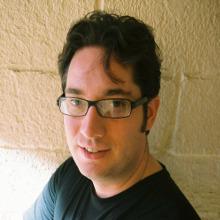The Fuel Of Evolution

Laboratorio diagnostica ancona IZSUM via Flickr | http://bit.ly/2afHIIe
(Inside Science) -- When life on Earth first emerged about 4 billion years ago, it was simple by today's standards.
For more than a billion years, the planet was dominated by humble clumps of bacteria and other organisms that were more or less the same as today's single-celled bacteria and microorganisms.
But then, just over 2 billion years ago, a new form of life emerged from the primordial ooze that would chart a radically different course in evolution. The entire diversity of multicellular life we know today -- every maple, mold, mushroom, mouse, or man that ever graced the earth -- descended from this organism, but scientists still do not know exactly how it came into existence.
Now, two European researchers have developed a new hypothesis that may explain how the original progenitor of animals and plants on Earth -- the first "eukaryotic" organism -- came to be.
"It seems to have happened because one cell got inside another cell," said Nick Lane, a biologist at University College London who developed the new hypothesis with William Martin, a biologist at the University of Duesseldorf in Germany.
Lane and Martin argue in the journal Nature this week that life's diversity of complex multicellular forms could only arise after one cell found its way inside of another and evolved over time into what is known today as mitochondria -- a tiny compartment that produces a cell's energy.
Humans and other animals have hundreds of these mitochondria in their cells, power generators that fuel all that our bodies do from cradle to the grave.
The new idea contradicts previous hypotheses that complex, multicellular organisms developed first on their own before mitochondria came into existence.
"Biologists have long thought that complexity comes first, then mitochondria," said Martin. "We show that that won't work. Mitochondria are required for complexity."
An Extremely Rare Event
The development of mitochondria seems to have happened only once in the entire natural history of Earth.
"It was a very challenging step in the origins of life," said Neil Blackstone, a biologist at the University of Northern Illinois who was not involved with the research but is familiar with the new hypothesis.
It was not enough for the one cell to find its way into the other cell, Blackstone said. Somehow the two had to coexist in the cooperative state known as symbiosis, sharing rather than competing for resources and coexisting without killing one another.
"It's a difficult dance," Blackstone said.
The danger in the beginning was that the internal cell would become a parasite, stealing the show by competing for resources with the host cell and ultimately killing it.
What happened instead, according to Lane and Martin, is that two cells evolved together. As they did, the internal cell became more and more efficient at doing just one thing -- powering the cell -- and it became smaller and smaller, shedding any genes that were not necessary for its one emerging function.
The bounty of energy inside the larger cell enabled these new life forms to amass 1,000 times or more the amount of DNA their ancestors had, allowing them to grow much more complex and branch into plants, animals, and other kingdoms over time.
Lane and Martin argue that energetics also explains why bacteria and other cells lacking these tiny energy factories never became truly complex. They always faced energy constraints that prevented them from acquiring and employing the thousands of new genes required for complexity.
"This is an important evolutionary insight into how life became complex, leading to multicellularity and the profusion and diversity of plants and animals that we see today, including ourselves," said John Allen, a biochemist at the University of London who was not involved with the research.

